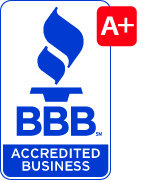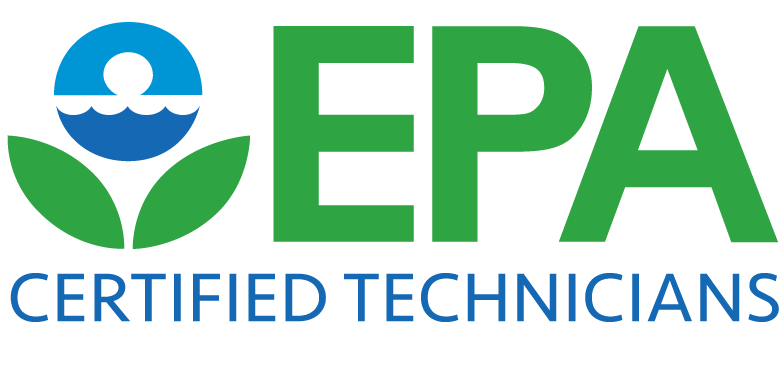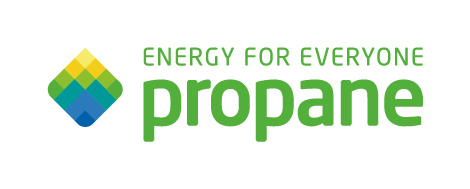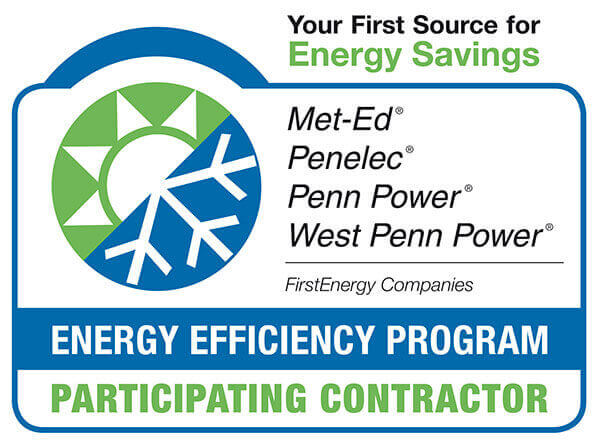Service
- Q: Do you provide 24-hour service?
- Q: How long do customers have to wait for emergency service?
- Q: Do you use your own installation specialists or do you hire subcontractors?
- Q: How long does it take to get an estimate on a new heating system?
- Q: Approximately how long does it take you to complete an installation of a heating system?
- Q: Is annual maintenance necessary?
- Q: How do I know what size system to install?
Heating Oil Prices
- Q: Are your prices competitive?
- Q: Which way are prices likely to go?
- Q: If I choose your SOS Smart Money Budget Plan, how do you come up with my monthly payment?
Propane
Heating Equipment
- Q: What should I do if my heating system doesn’t work?
- Q: How does a furnace work?
- Q: What is a cracked heat exchanger?
- Q: On mild winter days my furnace runs in short blasts and my home keeps alternating between being too hot and too cold. How can I fix this?
- Q: I hear a lot of talk about “high-efficiency” heating systems. How do you determine a heating system’s efficiency?
- Q: At what temperature should I set my thermostat?
- Q: Should I install a programmable thermostat?
Air Conditioning
- Q: How much does an air conditioning system cost?
- Q: Can I get a quote over the phone?
- Q: What does SEER stand for?
- Q: Is it OK to “mix and match” air conditioning components of different efficiencies? Just because my outside condenser unit is on its way out, does it mean I have to replace my indoor unit as well?
- Q: My home has a furnace but no air conditioning. Can I add central air?
- Q: My home does NOT have forced-air heating and there is no ductwork. Can I still get central air conditioning?
- Q: Do I really need a tune-up for my air conditioning system?
Water Heaters
- Q: What is an indirect-fired water heater?
- Q: Why do oil-fired water heaters save money and prevent hot water run-outs?
- Q: What can I do to maintain my water heater?
Tanks
- Q: Are underground tanks subject to federal regulations?
- Q: Where should I put my new aboveground tank?
Replace or Repair?
Service
Q: Do you provide 24-hour service?
A: Yes, we offer service 24 hours a day, every day of the year!
Q: How long do customers have to wait for emergency service?
A: On average, we will get to you within two hours.
Q: Do you use your own installation specialists or do you hire subcontractors?
A: We use only our own certified technicians to install new heating and air conditioning systems. We never hire subcontractors. Our technicians are among the most highly trained in the industry.
Q: How long does it take to get an estimate?
A: Usually it’s only a matter of one day. We can come out to your home at your convenience to determine and recommend the right size system for you.
Q: Approximately how long does it take you to complete an installation of an air conditioning or heating system?
A: Although every job is different and some take longer than others, it usually takes one day.
Q: Is annual maintenance necessary?
A: Absolutely. In our area, heating systems work hard. When anything is operating virtually nonstop for months on end, it needs regular maintenance—just like your car. Without the regular maintenance of a tune-up, you lose efficiency and money. In addition, regular maintenance can extend the life of your equipment.
Q: How do I know what size system to install?
A: The experts at SOS will be happy to come to your home and calculate your heating and cooling “loads.” They will then be able to recommend a system that is the correct size and model to meet your home’s requirements. For more details, just contact us.
Heating Oil Prices
Q: Are your prices competitive?
A: Yes. One of the things that allows us to be competitive is our storage capacity. We buy in larger quantities than some fuel dealers, which means a lower cost for us and a lower price for you. It’s also important to remember that as a full-service fuel company our prices may not always be the lowest in our market. But we offer you advantages that fuel discounters don’t—like a dedicated team of highly trained technicians, some of whom are always on call for you, 24 hours a day, 7 days a week.
Q: Which way are prices likely to go?
A: We wish we could tell you, but we have no idea. There are so many factors that could send prices up or down at any time. Just look at 2008, when many analysts were saying oil could go up to $200 a barrel, but then it dropped to $50 a barrel instead. In two of the last four years, prices dropped during the heating season. There’s really no way to predict fuel prices.
Q: If I choose your SOS Smart Money Budget Plan, how do you come up with my monthly payment?
A: We take the number of gallons you used last year, multiplied by projected prices for the coming season, apply any credit balance on your account and divided the total by 12 months.
Propane
Q. Is propane a safe fuel?
A. Propane has a fantastic safety record, thanks to strict regulations developed by the propane industry in conjunction with the National Fire Protection Association. We provide you with worry-free operation for all of your propane equipment. SOS places a huge emphasis on training and the safe handling of the product. We continually address all the safety aspects of propane, including installation, storage and tank filling.
Q. Why should people buy their propane from SOS?
A. There are a lot of reasons:
- We take exceptional care of our customers. You will receive the same excellent, responsive service we offer to all of our customers.
- Our prices are very competitive.
- We have no minimum delivery requirement.
- Our surcharges are very low. All propane dealers are required to collect these charges, but some of our competitors charge five or six times what we charge.
- If you already buy your heating oil from us, it will make it more convenient to get your heating oil and propane from one source.
And here’s one more thing to consider: SOS is your local propane company; our employees are your neighbors, and SOS is very active in the community.
Heating Equipment
Q: What should I do if my heating system doesn’t work?
A: Before you contact us, we can give you some tips to make sure a service call is really needed. This could save you the cost and inconvenience of an unnecessary service visit. Plus, it will ensure our technicians are working where they are most needed.
- Make sure the thermostat is set above room temperature or in the “heat” position. If it’s a digital thermostat and the display screen is blank, you either need new batteries or the power supply has been interrupted.
- Check for a tripped circuit breaker or a blown fuse.
- Look to see if the power switch for your heating system is turned on. Sometimes, these get turned off accidentally.
- Check your tank to see if you have heating fuel.
- If you have an oil heating system, press the reset button on the burner relay—ONLY ONCE. If your system doesn’t start after you push the reset button the first time, do not push it again. Pushing this button more than once can cause your heating system to “flood.” Too much oil will get pumped into the combustion chamber, resulting in a lengthy and costly repair.
If at this point you still don’t get heat, call us immediately.
When a service technician arrives, let him know everything you did to the system before he begins working on it. You should also let him know if anything out of the ordinary happened, like an unusual noise, a strange smell or smoke.
In many cases, this will help the technician find the problem—and get your heat back on again—faster.
Q: How does a furnace work?
A: Heat is generated by burning oil, natural gas or propane inside the furnace. This happens in the combustion chamber, which gets very hot. Air absorbs this heat in the furnace’s heat exchanger. Next, the blower sends the heated air through a system of ducts, and warm air circulates through the home.
Q: What is a cracked heat exchanger?
A: The heat exchanger is the main component of your furnace. If the heat exchanger has a crack or a rust hole, combustion fumes (including carbon monoxide) can contaminate the air in your home. This is a potentially deadly situation and should be addressed IMMEDIATELY. A cracked heat exchanger usually requires replacing the entire furnace. If you suspect that you might have a cracked heat exchanger, or a carbon monoxide problem caused by your furnace, turn the system off immediately. Then call SOS right away for service.
Q: On mild winter days my furnace runs in short blasts and my home alternates from being too hot to being too cold. How can I fix this?
A: Installing a new furnace with two levels of heat and a variable-speed motor is a good solution. These “smart” motors automatically adjust the volume and speed of air based on your home’s temperature requirements.
Q: I hear a lot of talk about high-efficiency heating systems. How do you determine a heating system’s efficiency?
A: One indicator is Annual Fuel Utilization Efficiency (AFUE). All heating equipment manufactured after 1980 is required to have a label indicating its AFUE. The AFUE ratio is a measurement of a heating system’s seasonal efficiency, taking into account how well the system performs over an entire season of starts and stops. Modern heating systems can range in efficiency from 81% to 95%. If your system’s AFUE is lower than this range, we recommend that you contact us to talk about your replacement options.
Q: At what temperature should I set my thermostat?
A: Different people feel comfortable at different temperatures. Pay less attention to the number on the thermostat display (or the position of the temperature indicator on a nondigital display) and more to how comfortable the room feels to you. When you feel comfortable, check the setting. That’s the right temperature for you.
Q: Should I install a programmable thermostat?
A: Absolutely! Programmable thermostats are especially useful for people who are away from home at regular intervals. They allow for customized comfort settings around the clock, and they can cut heating and cooling costs by as much as 10%!
Air Conditioning
Q: How much does an air conditioning system cost?
A: There are many factors that come into play when determining the cost of your central air conditioning system. When it comes to an air conditioning system, aside from choice of the unit, model and size, and important factor is to have it installed properly in order for it to work as it should. Contact us today and get a FREE estimate.
Q: Can I get a quote over the phone?
A: We can give you a ballpark estimate if we have enough information, but it’s hard to determine a good estimate without physically seeing your current equipment.
Q: What does SEER stand for?
A: SEER stands for Seasonal Energy Efficiency Ratio. It is used to indicate the efficiency of air conditioning systems. The higher the SEER number, the more cooling you get per unit of energy. As of January 2006, only units with a SEER of 13 or higher can be sold in the United States. Today’s cooling units are up to 40% more efficient than those made as recently as 10 years ago.
Q: Is it OK to “mix and match” air conditioning components of different efficiencies? Just because my outdoor compressor is on its way out, does it mean I have to replace my indoor unit as well?
A: It’s never a good idea to mix and match air conditioning components of different SEERs. You might save money initially by replacing your outdoor unit with a unit that has SEER of 13 (now required) or higher, and hooking it up to your 10-or-12 SEER indoor unit. However, it just doesn’t make sense in the long run. You’re just not going to get your money’s worth in terms of comfort and efficiency. You’re better off paying a little extra up front and save a lot more over time. At SOS, we have the expertise to help you choose the right efficiency system for your home. For a no-obligation evaluation and FREE estimate, contact us today.
Q: My home has a furnace but no air conditioning. Can I add central air?
A: Yes, we can mount a cooling coil on top of the furnace and install a condensing unit outside. For a no-obligation evaluation and FREE estimate, contact us today.
Q: My home does NOT have forced-air heating, and, therefore, there is no ductwork. Can I still get central air conditioning?
A: Today simple, ductless air conditioning options make it possible to install a quiet, efficient air conditioning system in your home even if it doesn’t have ductwork.
Ductless air conditioning systems consist of one or more indoor air distribution units linked by refrigeration lines to an outdoor compressor. These flexible “hoses” can be positioned inside your walls and ceilings with a minimum of inconvenience. Installing ductless air conditioning costs a little more than standard central air systems, but much less than the cost of installing ductwork and a central air conditioning system.
Q: Do I really need a tune-up for my air conditioning system?
A: An air conditioning tune-up and inspection will help catch service problems before they get you hot under the collar. Many breakdowns occur on the hottest day of the year — because that’s when your air conditioning system is under the most stress. And because a tune-up ensures that your system will run at peak efficiency, it will lower your electric bills. A system that’s running efficiently can save you as much as 10% on your cooling costs.
Water Heaters
Q: What is an indirect-fired water heater?
A: In an indirect-fired water heating system, the domestic water is heated by hot water from the boiler. A typical design is a water tank with coiled pipes inside. These coiled pipes connect to your boiler. Hot water from the boiler passes through the coil, which heats up the domestic water surrounding it.
Q: Why do oil-fired water heaters save money and eliminate the chance of running out of hot water?
A: Heating oil produces the hottest flame of any home heating fuel. This means that an oil-fired water heater heats water fast. How fast? On average, oil-fired units heat water three times faster than gas heaters and five times faster than electric units.
Q: What can I do to maintain my water heater?
A. In order to maintain your water heater, you can take the following steps:
- Every three months, drain a gallon of water from the tank. Do it every month if you have hard water. This reduces the amount of sediment collecting in the bottom of the tank, which can make the burner or heating coils work harder.
- Every year have your water heater inspected by a service technician to keep it in peak operating condition.
Tanks
Q: Are underground tanks subject to federal regulations?
A: No. At this time there are no federal laws governing active, underground, home heating oil tanks.
Q: Where should I put my new aboveground tank?
A: Because heating oil is biodegradable and safe to store inside the home, you can put your new leak-proof tank in a basement, closet or garage. You can also put it outside, near your house or garage or anywhere in your yard.
Replace or Repair
Q: How can I determine whether it will be more cost-efficient for me to repair or replace my old heating system?
A: The frustration of an equipment breakdown can make it tempting to solve the problem with a quick fix that doesn’t cost you a lot of money. That way you can get on with your busy life in relative comfort. But while a quick fix may be the least expensive solution in the short run, it may not give you the most value in the long run. It’s a fact of life: Older systems are more likely to break down. That means greater chance of emergency service calls and repairs—and paying for them.
There’s also an ongoing cost factor. Repairing an old system can restore it only to something less than its original level of efficiency. After you’ve recovered from the repair bill and the frustration of a system breakdown, you’ll still be battling high energy bills. What’s more, even a system that doesn’t break down loses efficiency as it ages. A 15-year-old system doesn’t operate anywhere near the efficiency it had when it was new!
Plus, when compared with modern, technologically advanced equipment, 15-year-old systems are considered inefficient by today’s standards. The average homeowner can save up to 40% on energy costs with new high-efficiency equipment.
Here Are Some Rules of Thumb to Help You Decide Whether to Replace or Repair Your System:
Replace your system if:
- It is more than 10 years old and only in average condition
- it does not keep you as comfortable as you would like
- It breaks down frequently
- You will be living in your home for at least five more years
Repair your system if:
- It is less than 10 years old and in good condition
- Your cooling costs have been acceptable
- You’re pleased with your level of comfort
- Its performance is reliable
- You will be moving within the next five years
- It is still under warranty










